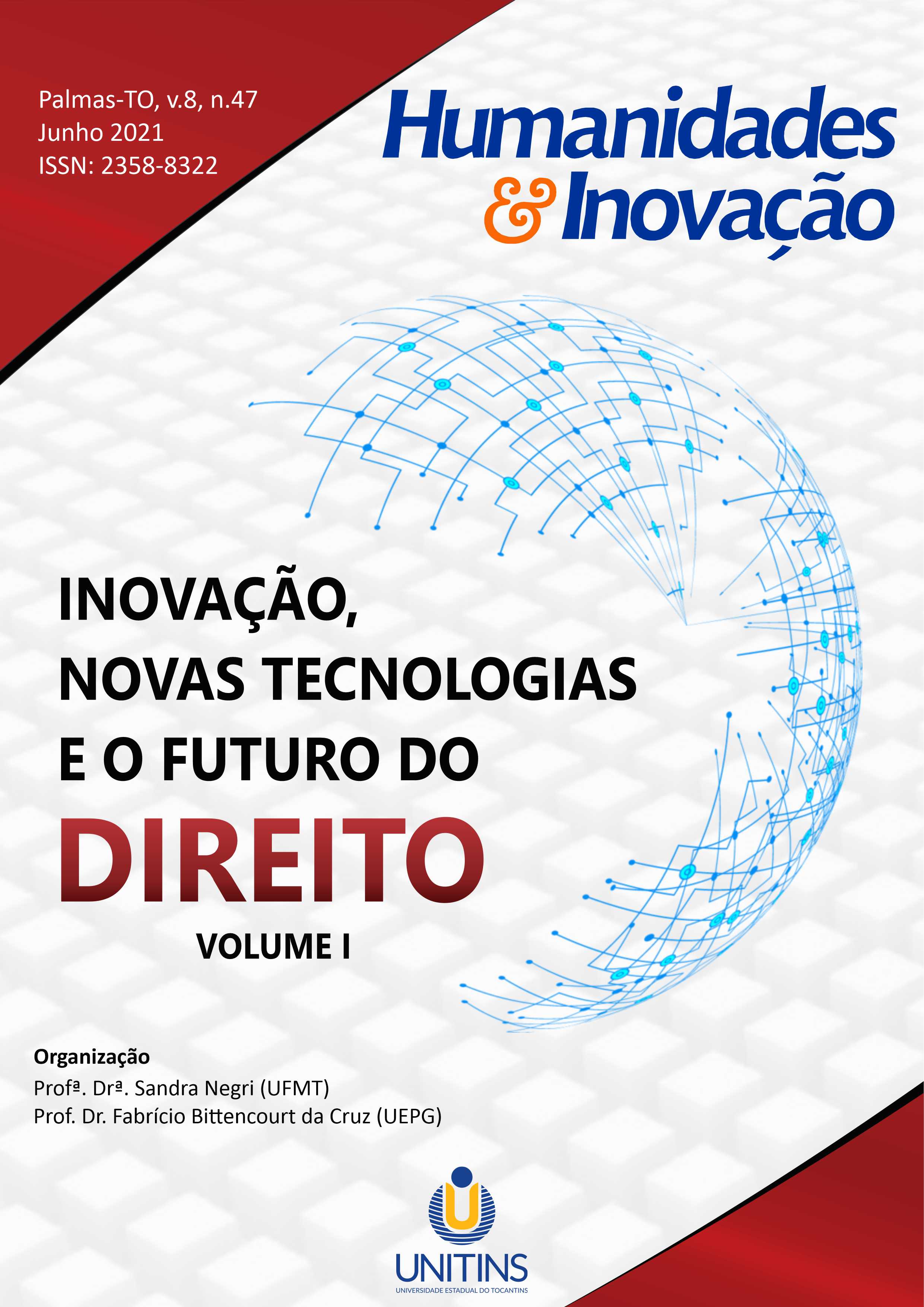METODOLOGIAS ATIVAS E NOVOS PROCESSOS DE ENSINO-APRENDIZAGEM: UMA EXPERIÊNCIA INOVADORA
Abstract
This article presents a brief study, final product of the Graduate Course Lato Sensu Process Educational Innovators - PEI, conducted from bibliographic nature research of qualitative approach. The objective is to discuss learning in an increasingly interconnected social context, wich there are multiple communication channels that allow information to circulate rapidly, wich pedagogical practice should be understood as a time to experiment. There is a need for an innovative, open, dynamic, motivating practice and the active methodologies come as tools that will enable students to advance the processes of reflection, cognitive integration, elaboration and reworking of the practice. We understood the active methodologies as pedagogical approaches in which the student has an active role in the process of his learning, is responsible for seeking the information, discussing, searching for the solutions to the problems, learn by doing and reflecting critically on all the steps performed in the activities.
References
BENDER, W. N. (2014). Aprendizagem Baseada em Projetos: educação diferenciada para o século XXI. Porto Alegre: PENSO.
BERGMANN, J.; SAMS. A Sala de aula invertida: uma metodologia ativa de aprendizagem Tradução de Afonso Celso da Cunha Serra. 1. ed. Rio de Janeiro: LTC, 2016.
BUCK INSTITUTE FOR EDUCATION (BIE). MARKHAN, Thom; LAMER, John; RAVITZ, Joson (org.) Aprendizagem Baseada em Projetos: guia par professores de ensino fundamental e médio. Tradução: Daniel Bueno. 2 ed. Porto Alegre: Artemed, 2008.
CARVALHO, C. J. A. O Ensino e a Aprendizagem das Ciências Naturais através da Aprendizagem Baseada na Resolução de Problemas: um estudo com alunos de 9º ano, centrado no tema Sistema Digestivo. Dissertação de Mestrado, Universidade do Minho, 2009.
COCCO, S. Studente leadership development: the contribution of Project-based learning. Unpublished Master’s Thesis Royal Roads University, Victoria, BC, 2016.
CONFERENCE BOARD OF CANADA, 2014. Disponível em: http://portal.mec.gov.br/component/content/article?id=12991. Acesso em: 05 mai. 2021.
DELISLE, R. Como realizar a Aprendizagem Baseada em Problemas. Porto: ASA, 2000.
DEWEY, J. Science as a subject-matter and as a method. Science, v. 31, n. 787, p. 121-127, 1910.
______. O ato de pensar e a educação. In: ______. Democracia e Educação: Introdução a filosofia da educação. 4. ed. São Paulo: Nacional, 1979. cap. 12, p. 167-180.
FREIRE Paulo. Educação como prática da liberdade. Rio de Janeiro: Paz e Terra; 2001.
______. A importância do ato de ler; em três artigos que se completam. São Paulo: Autores Associados: Cortez, 1989.
KATZ, L. G.; CHARD, C. Engaging children’s minds: the Project approach. 2 ed. Connecticut: Ablex Publishing Corporation, 2000.
HELLE, L; TYNJALÁ, P.; OLKINUORA, L. Project base learning in post secondary educátion – theory, pratice and rubber sling shots. Higher Education, v.51, p.287-314, 2006.
LAMBROS. Problem-Based Learning in Middle and High School Classrooms – A Teacher’s Guide to Implementation. Thousand Oaks: Corwin Press, Inc. 2004.
MORAN, José. Metodologias ativas para uma aprendizagem mais profunda. MORAN. In. José; BACICH,Lilian. Metodologias ativas para uma educação inovadora: uma abordagem téorico-prática [recurso eletrônico] / Organizadores, Lilian Bacich, José Moran. – Porto Alegre: Penso, 2018.
MORAN, J. M. Mudando a educação com metodologias ativas. In Convergências Midiáticas, Educação e Cidadania: aproximações jovens. Coleção Mídias Contemporâneas. 2015.
PRADO, M. E. B. B. (2003). Pedagogia de Projetos. Gestão Escolar e Tecnologias. Disponível em: http://www.eadconsultoria.com.br/matapoio/biblioteca/textos_pdf/texto18.pdf. Acesso em: 05 mai. 2021.
PERRENOUD, F. Dez novas competências para ensinar. Tradução Patrícia Chittoni Ramos. Porto Alegre: Artes Médicas Sul, 2000.
RIGOLON, Palma Simone Tonel. Do Tecnicismo à Reflexão Crítica: um panorama, 2008. Disponível:http://acervo.paulofreire.org/. Acesso em março, 2020.
SIMÃO, Alberto. O Tecnicismo Pedagógico e o Professor reflexivo: convergências e divergências da prática pedagógica Docente. 2013. Disponível em: https://educere.bruc.com.br/CD2013/pdf/13477_6391.pdf. Acesso em março, 2020.
VALENTE, J. Blended learning e as mudanças no ensino superior: a proposta da sala de aula invertida. Educar em Revista, v.4, p.79-97, 2014ª. Disponível em http://www.scielo.br/pdf/er/nspe4/0101-4358-er-esp-04-00079.pdf. Acesso em: 05 mai. 2021.
Copyright Notice
The submission of originals to this periodic implies in transference, by the authors, of the printed and digital copyrights/publishing rights. The copyrights for the published papers belong to the author, and the periodical owns the rights on its first publication. The authors will only be able to use the same results in other publications by a clear indication of this periodical as the one of its original publication. Due to our open access policy, it is allowed the free use of papers in the educational, scientific and non-commercial application, since the source is quoted (please, check the Creative Commons License on the footer area of this page).











